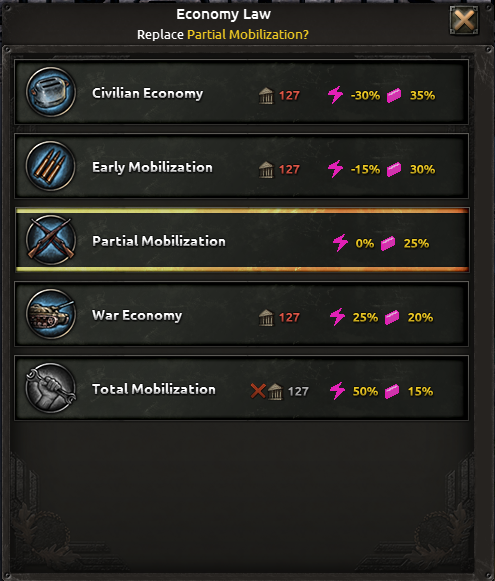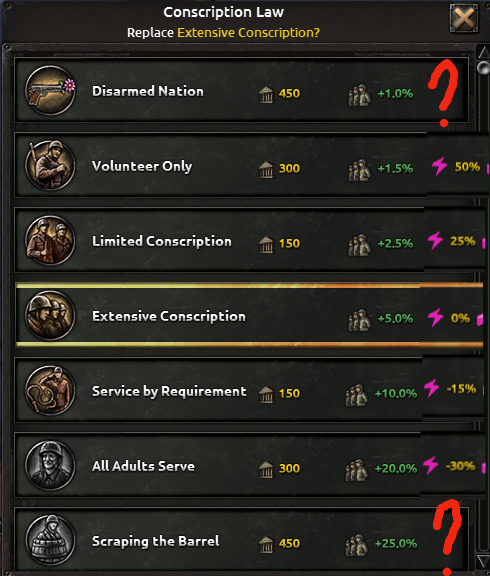Hello everyone, first of all I want to say that such a topic is not the subject of my knowledge and I can talk nonsense. Such an idea is given for reasoning about the recent developer corner about energy in the game. First off all, a clear example (percentages and their distribution obviously need to be changed, but the idea that I want to convey is clear):


The developers stated that one of the theoretical bases lies in increasing the number of shifts and I also think in the need to increase the human resource for production while raising the conscription laws depletes our human resources. I think that something like this could offer our juggling between economic laws and conscription in this case, the energy consumption would be mirrored between themselves.
It is also worth noting that women also work in factories, although in the game this is a theoretical part of the game and is used at most in the decision window, based on this, this can also be a subject of discussion.


The developers stated that one of the theoretical bases lies in increasing the number of shifts and I also think in the need to increase the human resource for production while raising the conscription laws depletes our human resources. I think that something like this could offer our juggling between economic laws and conscription in this case, the energy consumption would be mirrored between themselves.
It is also worth noting that women also work in factories, although in the game this is a theoretical part of the game and is used at most in the decision window, based on this, this can also be a subject of discussion.
Last edited:
- 3
- 3
- 1
- 1

